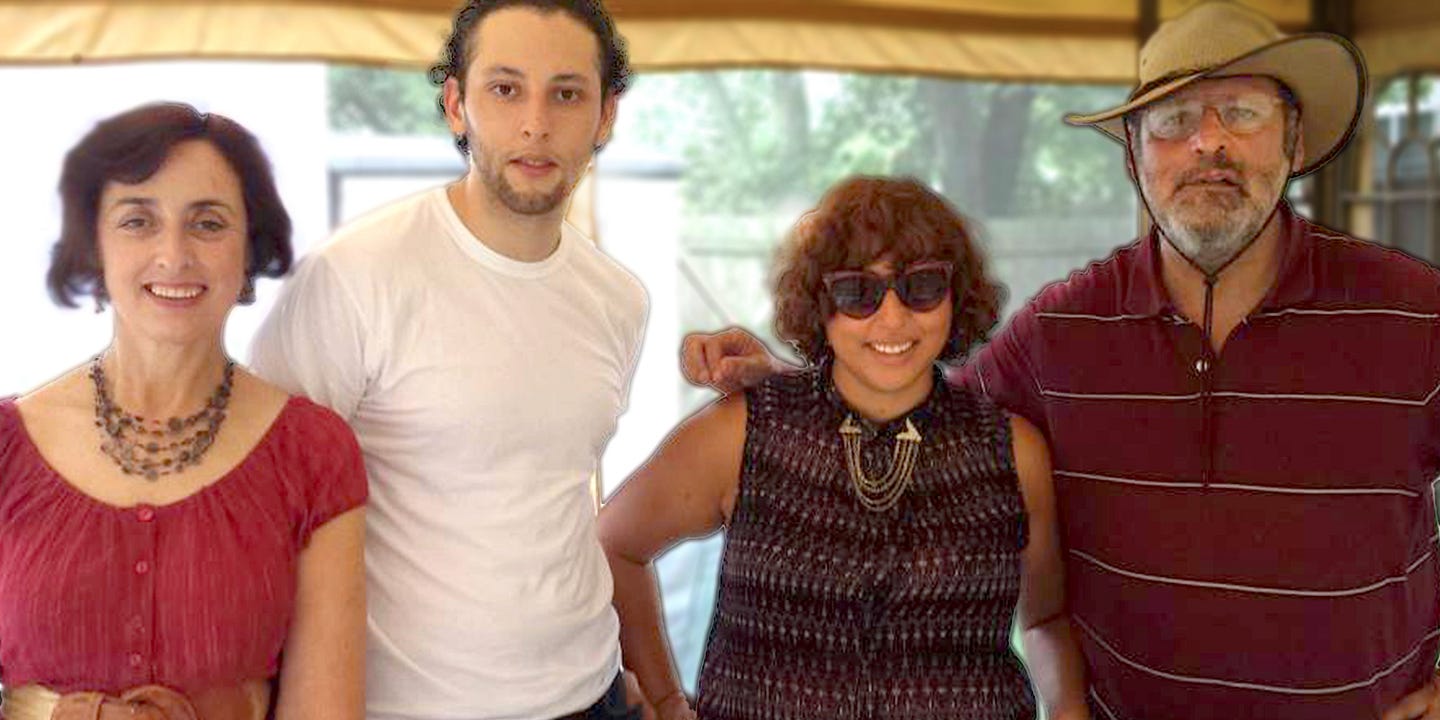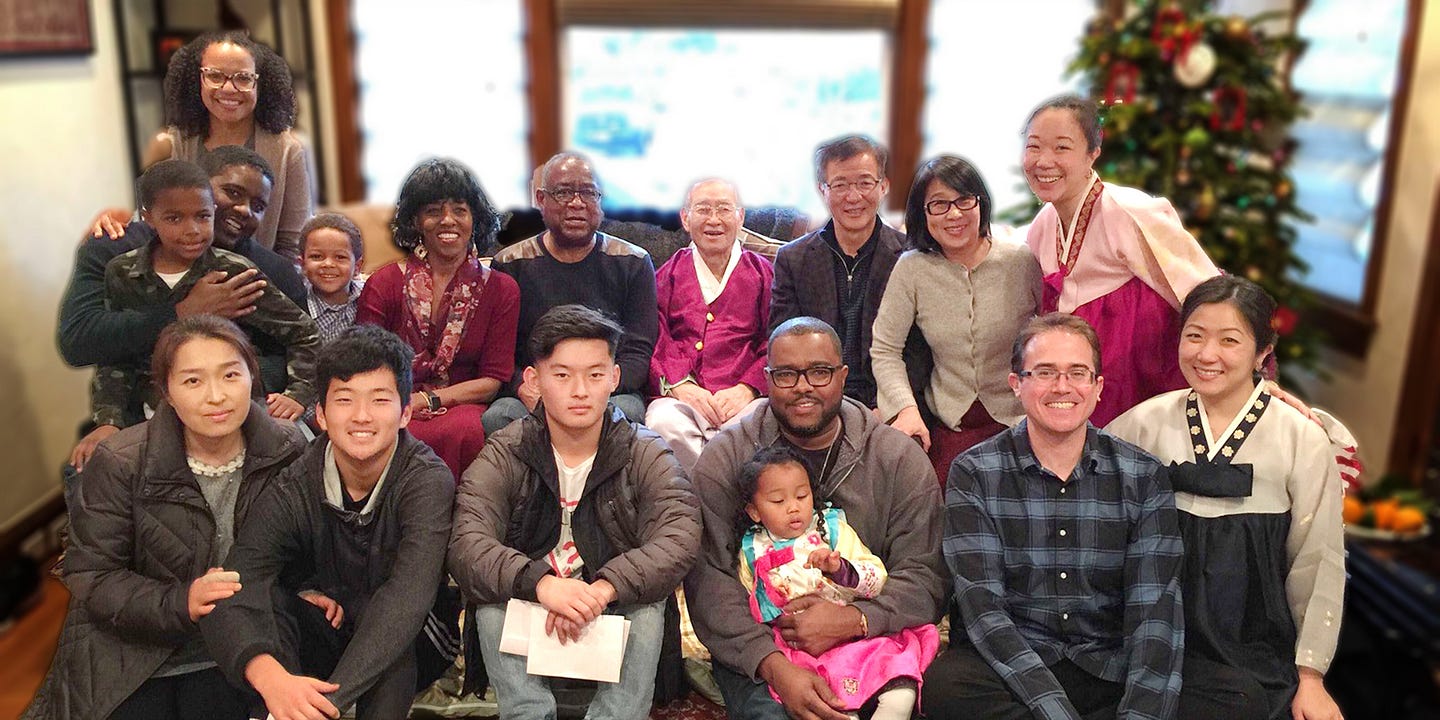The Power of the Immigrant Mindset
Authors: Joann Lee Wagner, Former VP of People Operations, Ana Ramos, Former Manager of Impact Investments, Cristina Diaz-Borda, PR & Editorial Manager, Rakiba Kibria, Former VP of Revenue


At Common Future, we pride ourselves in the knowledge that we are a Black-led, majority BIPOC staffed organization. This diversity comes with many advantages including diversity of experience and origin. We’re taking a moment to highlight and celebrate our immigrant heritage, sharing stories from some of our staff who identify as first- and second-generation immigrants
The Audacity to Dream
 Ana’s Father with her Daughter
Ana’s Father with her Daughter
I come from a small town in the Cibao region of the Dominican Republic. We’re known for our ability to weave local palm fibers into beautiful baskets, make bread out of the cassava root, the craftsmanship of our rocking chairs, and for dancing the night away to merengue de la linia. My town is a beautiful, fertile place, but it was also very poor when my parents were growing up. Despite growing up in poverty, my father was able to manage a successful bread factory. But he dreamed of getting out — which in my country meant going to Nueva Yol — which you might know as New York. With this dream in his heart he decided to migrate to the United States in the late 80’s. Years later, my mother was able to get a visa, and a few years later I was able to do the same.
My father does not often speak of his trip — walking his way through civil war, rich cultures, extreme poverty and magnificent Latin American cities until arriving in the city of his dreams in the USA — but it’s one I carry with me. I think about his sore feet every time that I walk through an airport, about his 13-hr work days in bodegas whenever I’m able to take time off. I never take my rest or my privilege for granted. Most of all, I think about his audacity to dream. Manifestation is what it is now called on Instagram and self-help books, my people have done this their whole lives and I am a product of those dreams.
The work that I do at Common Future is directly tied to the dreams of my family to launch a business and live a comfortable life. Not everyone is afforded the same opportunities, maybe my parents got lucky. But if we are to truly be the land of opportunity where dreams can be manifested we cannot depend on luck. We need real capital and resources behind every dream and we need more people to believe that there is a better way and that we are the ones that can make the change.
— Ana Ramos, 1st generation Dominican American, Programs & Grantmaking Manager
Hustling for My Community
Rakiba’s Family
My parents and I were awarded the first Diversity Visa issued by the U.S. State Dept in 1990. We became somewhat poster children for the diversity visa lottery system: a young-family with boundless opportunity awaiting them in America.
My dad arrived first, to NYC. What the newspapers and press spotlights didn’t tell him is that he’d spend the first three months of his new life in Queens, NYC in a cramped one bedroom sublet housing four people looking for jobs, not knowing he needed this ID card with a social security number. It took three more years and countless odd-jobs to learn that his masters level education in mathematics and accounting was essentially useless because it wasn’t accredited by the higher education boards in the U.S.
The experiences that followed led our family to become guides/navigators for all Bangladeshi immigrants that landed on our doorstep. I moved out of my home for college, and by that time we had already housed, fed, submitted job applications, filed healthcare claims, navigated school forms and PTAs for 100s of families. Many immigrant families have similar stories.
We learned from an early-age to be in service of our fellow community members, to advocate, translate and represent our parents, grandparents, third uncle twice removed, and neighbors without hesitation. We had to be resourceful because we had no resources.
I’m still playing that mobilizer/facilitator role in my work today, fundraising to close the gaps and asymmetry between wealth holders and community wealth builders. Now, it’s not about how best to hustle and navigate these systems, but working to actively dismantle the opaqueness and injustices rooted in the systems that create conditions in which my community — and other BIPOC communities — cannot survive, let alone thrive.
— Rakiba Kibria, 1st generation Bangladeshi American, Director of Advancement
Staying Curious
 Cristina’s Family
Cristina’s Family
My family has immigrated to the U.S. several times over — moving here and then going back or following other adventures over several generations. Despite my grandfather coming here and working on the NY Subway system as an engineer in the 1920s, until my little brother, we were all born abroad. Somehow tied to the adaptability that’s intrinsic to learning how to exist in new places, governments, languages and systems, my whole family loves to teach ourselves things — literally ranging from embroidery to quantum physics. As a kid, I taught myself English, largely from books, and became the de facto translator, speech coach and copy editor for the family at an early age — likely leading to my career. Yet, of all the things I’ve learned from my folks or even taught myself, my mom’s lesson endures.
When my mom came to America the first time, she barely knew a word of English. Somehow, she passed the TOEFL, passed the GRE with flying colors and got accepted to a University of Texas at Austin Masters on a full scholarship, but when she arrived the ruse was revealed. They heard her speak and immediately sent her off to an intensive English course which she just passed and went on to graduate with a Masters of Architecture, meeting her fellow Longhorn and Colombian husband along the way.
All these years later, my mom’s accent remains strong, she struggles with grammar and spelling, and yet this tiny Colombian lady has been competitive in the white, male-dominated world she works in. I often think of her when in Modern Family, Sofia Vergara‘s Gloria says, “Do you know how frustrating it is to have to translate everything in my head before I say it?” “Do you even know how smart I am in Spanish?”
Her secret? She has 0 shame when it comes to asking questions. “What’s that word?” “What does it mean?” “Is this how you pronounce this?” “Cómo se dice…” and then she scribbles it down in her latest notebook. She has done this throughout her entire English-speaking life, both at home and at work. Where some would nod along as if they know, she asks, and more importantly learns. That infinite curiosity is something I always embrace, leading to professional success when thrown into uncharted territory.
Too often, we learn to be afraid of seeming incompetent or uneducated but those fears hold us back. A little earnest curiosity could help us all.
— Cristina Díaz Borda, 1st generation Colombian American, Digital Content Producer
Finding Community
 Joann’s Family
Joann’s Family
My grandfather was a pastor in Seoul, South Korea. His congregation — made up primarily of the button-makers’ guild — decided to sponsor him and his family moving to America. They had heard stories of riches and opportunity, and they hoped that his success would eventually lead to their success. My grandparents and their four children made the journey in 1969. My father, the eldest son, was just turning 16 at the time.
As it was for many immigrants, my family’s journey to create a new life in a new land was not easy. As a child, I witnessed the hard work, sacrifice, and community it takes to survive and thrive in a land that looks at you like you don’t belong simply because you look different and don’t speak the language. Growing up, I saw my grandmother hustling in the street stalls of Fisherman’s Wharf in San Francisco selling fancy candles she and my aunt made in their garage. I saw my mom and dad as they worked 6 days a week with 12+ hour days at our family’s dry cleaning business. I felt their absence, while still knowing that it enabled the privilege of a good education for me and middle class lifestyle for our family. I also felt the community that surrounded us — whether it was the other, usually immigrant, workers at the dry cleaners who would help pick up my sister and I after school when my parents could not, or the Korean church community that bridged some of the resource and knowledge gaps and made you feel like there was always a place you belonged.
As the child of immigrants, it’s the complexity of the experience that stands out to me the most. The promise of opportunity, the sacrifice and hardship, feeling like you straddle two worlds. It’s not good or bad, success or failure, triumph or heartache. It’s both, and. It’s all of the above. And I’m grateful, most days, for those button makers that banded together to send my grandfather to America. It’s home now. For better or worse.
— Joann Lee Wagner, 2nd generation Korean American, VP of People Operations


